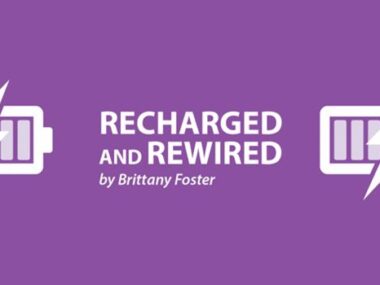Raising PH awareness is one of my New Year’s good intentions
My promise to the PH community as I look ahead to 2025
Written by |

Many a new year has been greeted with the saying “Out with the old, in with the new.” That is a fair declaration of a calendar flip, but it’s implausible that people will change just as easily on Jan. 1.
I’ve often honored New Year’s as if it were the changing of the guard. At midnight, I’d be a new person following new rules. It was always discouraging when in a few days I was already wobbling with my resolutions.
That’s why, in 2025, I’m focused on good intentions instead of resolutions. Failed resolutions easily defeat me, but I’m willing to evaluate and alter a good intention.
After my son Cullen, 25, was diagnosed with pulmonary hypertension (PH) in 2008, I resolved to spread greater awareness of the disease. Many changes have since affected those efforts, but in 2025, I intend to continue doing as much good within the PH community as possible.
Goodbye, but not good riddance
When Cullen received a heart and lung transplant in 2014, we were given the opportunity a few weeks later to view and hold his old heart and lungs. It was a powerful and emotional way to say farewell to those wounded warriors and the disease that hurt them so badly they could no longer function well enough to keep Cullen alive.
Saying goodbye wasn’t as hard for me as saying good riddance. I was too PH aware at that point to say it without pangs of sorrow and guilt, knowing that so many children and adults still have that rare monster inside of them.
It will only be good riddance if a cure is found, or if a treatment is discovered that successfully keeps the disease from worsening to the point of death or the need for a transplant.
I will continue to spread PH awareness with the hope that, someday, every PH patient and caregiver can say good riddance to this life-threatening disease.
What experiences do I have left to offer?
In a previous column, I shared how difficult it was to return to writing after my husband, Brian, died in 2023. I’ve overcome that challenge, but going forward, I must be mindful that my good intentions don’t get lost in my words.
I stopped being a PH caregiver when my son received his transplant 10 years ago. Instead, I have helped care and advocate for Cullen through the challenges of keeping his new heart and lungs healthy. I took care of my husband when his health declined, and now, I’m doing the same for my aging parents.
I have shared my new caregiving experiences in my column because I believe so much of it is still relatable to the PH community.
PH is cruel, and so is the fact that life won’t stop challenging you with other things just because you or a loved one has the condition. People still age and die from other causes on top of grieving for the many we lose to PH. At some point, most patients and caregivers dealing with any health crisis will struggle to navigate health insurance, balance responsibilities, advocate for themselves or others, and find a way to live a life of quality and not just quantity. This reality provides me with plenty to translate into PH awareness.
What I can’t offer
New PH treatments are being offered that weren’t available when my son had PH 10 years ago, such as Uptravi (selexipag) and Winrevair (sotatercept-csrk).
I wouldn’t presume through personal research to know and understand the complexities and side effects of these treatments enough to write about them. I will mention how wonderful it is that the medical world hasn’t given up on developing new and better PH treatments, and I thank the patients who agreed to participate in their studies.
I promise the PH community that my column topics will continue to be relatable. If I ever go astray, please comment and let me know so that I can do better with my good intentions.
Through my column I’ve often helped others share their experiences as PH/transplant caregivers. If you’d like to be interviewed, please contact me at [email protected].
Note: Pulmonary Hypertension News is strictly a news and information website about the disease. It does not provide medical advice, diagnosis, or treatment. This content is not intended to be a substitute for professional medical advice, diagnosis, or treatment. Always seek the advice of your physician or other qualified health provider with any questions you may have regarding a medical condition. Never disregard professional medical advice or delay in seeking it because of something you have read on this website. The opinions expressed in this column are not those of Pulmonary Hypertension News or its parent company, Bionews, and are intended to spark discussion about issues pertaining to pulmonary hypertension.





Leave a comment
Fill in the required fields to post. Your email address will not be published.